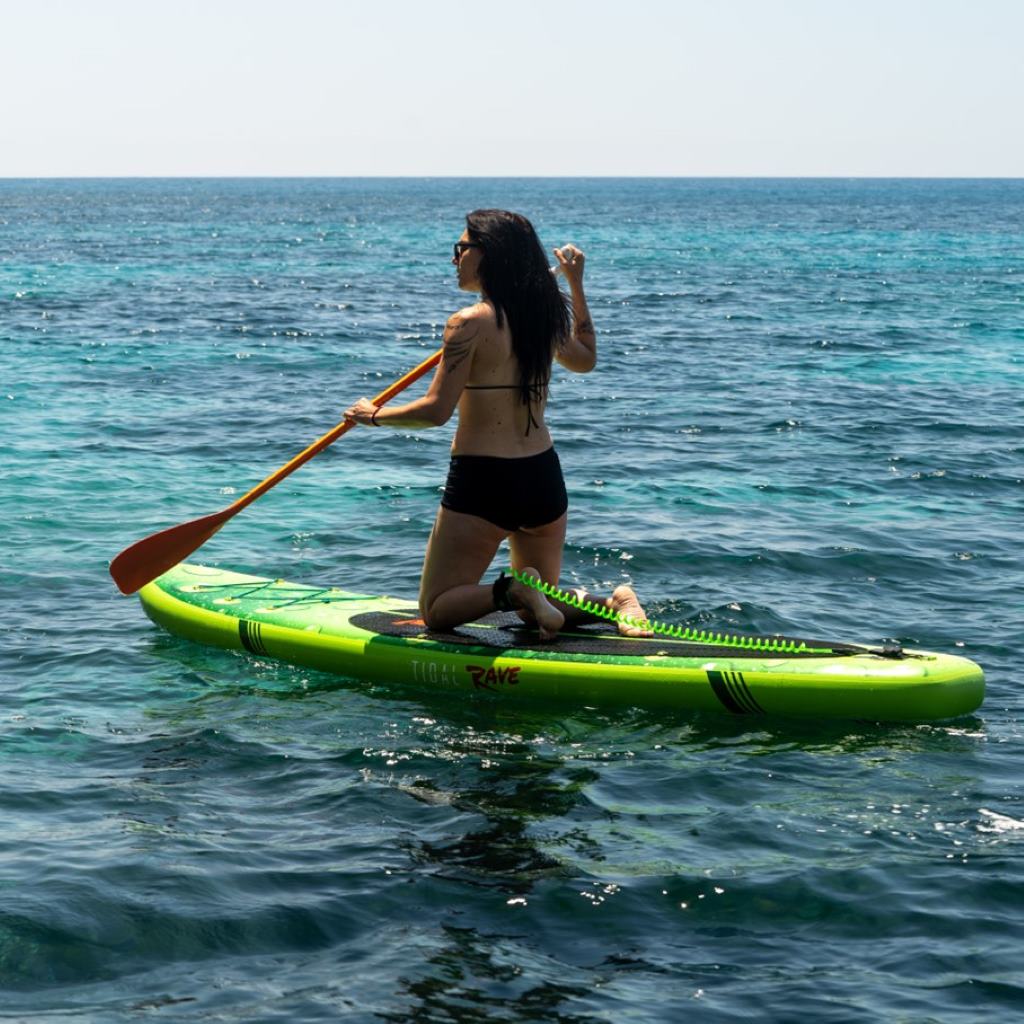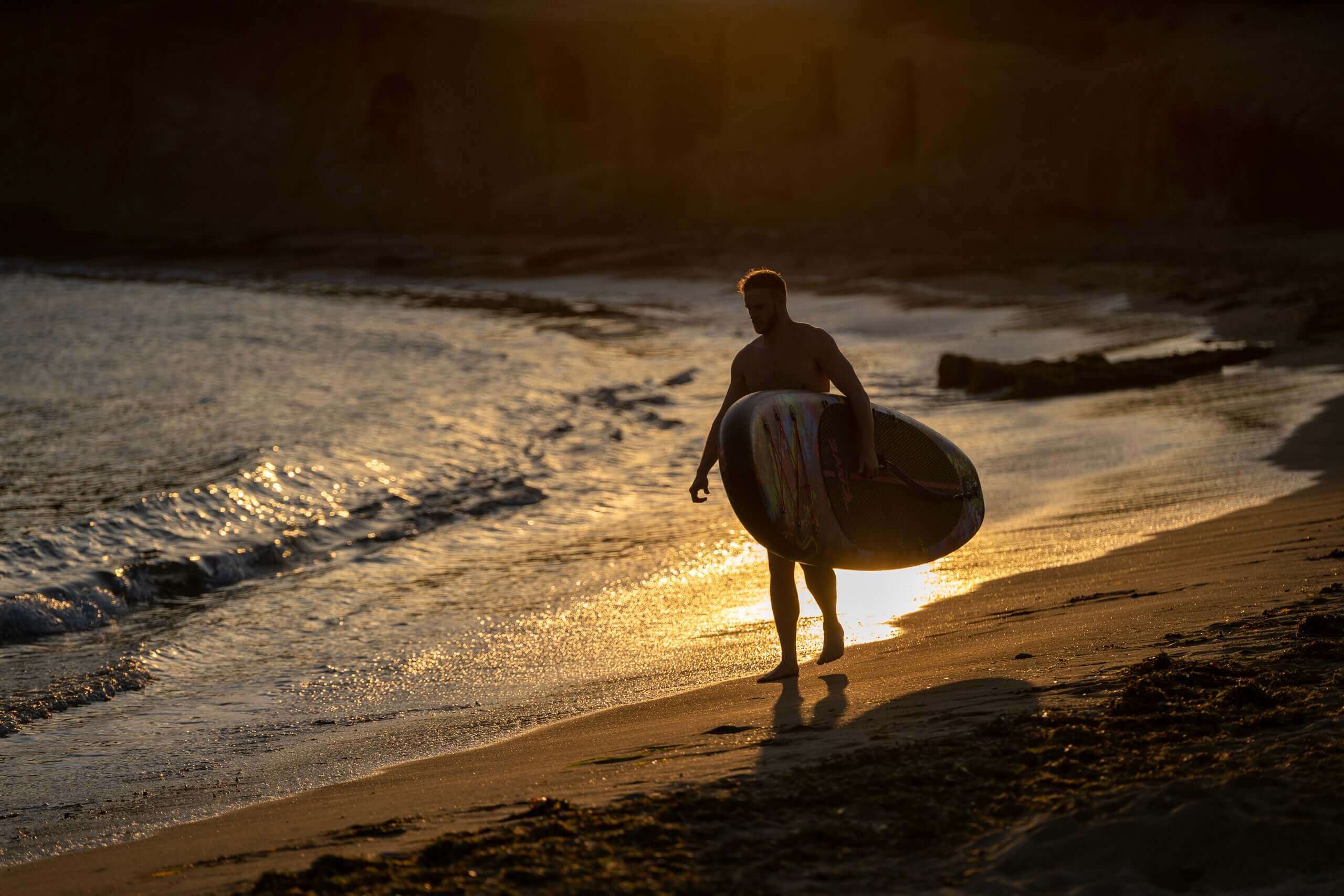It’s a common misconception that you can paddle board freely anywhere with no limitations but in the UK this isn’t the case. As you will see below, while there are plenty of free waterways and bodies of water you can traverse without limitations, some managed waters do require a licence.
If you are wondering, do you need a licence to paddle board in the UK, I clear up all misconceptions below and explain the requirements for different regions, and how you can paddle board safely without causing disruption.
Licensing Requirements in the UK
Part of our paddle boarding guide for beginners includes looking briefly at licencing but I explain it in more detail here. Essentially, there can be considered three types of waterways in the UK - Public unmanaged, public managed, and private.
Generally, public waterways that are unmanaged can be used freely without the need for a license. This includes things like coastal waters, the sea, and rivers and streams that aren’t maintained by any central organization.
Private waterways such as private boating lakes should only be used if you have the express permission of the owner or persons responsible. Lastly, managed waterways usually require a licence to paddle board but the authority responsible for this differs from region to region.
England
In England, a licence can be bought from British Canoeing on an annual subscription. There is a range of licences available but the most common is the On The Water individual licence which costs £47.00 per year for adults (at the time of writing this) and includes the all-important waterways licence, but also other things like public liability insurance and access to exclusive discounts and offers.
The waterways licence is what we need and this gives you access to over 4,500km of managed waterways in the UK. For £47 per year, this is relatively inexpensive and I advise investing in it as it saves any trouble or the potential for fines which can happen!
Scotland
In Scotland, the requirements are different and you don’t need a license to paddle board on Scottish waterways even if they are managed. This is because in Scotland the “Right to Roam” can be exercised. This Act states that “everyone in Scotland has the right to be on land for recreational purposes and to cross this land for said uses”. Therefore, providing you are respectful and act responsibly, you can use any waterway in Scotland for paddleboarding.
Wales

Wales has essentially the same setup as England and indeed they offer the same annual membership packages with On The Water being the most popular. This is also £47 per year and includes the waterways licence and public liability insurance. The licences are distributed by the same British Canoeing organization and children under the age of 18 get a discounted rate of £28 per year.
Northern Ireland
Generally in Northern Ireland, a license is not needed for paddle boarding but in some inland waterways, you may still need to ask permission and even register to use.
Considerations When Choosing a Paddle Boarding Location
You should now have a clear idea of how you can use SUPs in the UK and where a license is required. I recommend that if you are serious about the sport and intend to paddle often, buying a license from British Canoeing is the safest option but aside from that there are other considerations to make when picking locations:
Type of waterway
First up is to find out what type of waterway it is and whether it’s private, public, or managed public. This gives you an idea of whether you need permission, or if you need to take your licence.
Suitability for paddleboarding
Always check the suitability of the water for paddleboarding too! Just because you can access a waterway, it doesn’t mean you should. This includes things like depth, tide strength, currents, and boating activity.
Respect for others
Regardless of the accessibility status of a waterway in the UK always try and act respectfully and be considerate of others who may be using it. This ensures no accidents and that everyone can have fun.
Respect Regulations and Private Ownership When Paddle Boarding
Do you need a licence to paddle board in the UK? In many instances yes, but as you can see from the above this depends entirely on the body of water and its status.
Managed rivers and canals in the UK require a licence from the British Canoeing Organisation and if you want to access private bodies of water it’s best practice to seek permission from the owners. Bodies of water such as rivers, lakes, and streams that aren’t managed are free game but you should always be considerate of others, while coastal waters are free to roam but always consider your safety.




